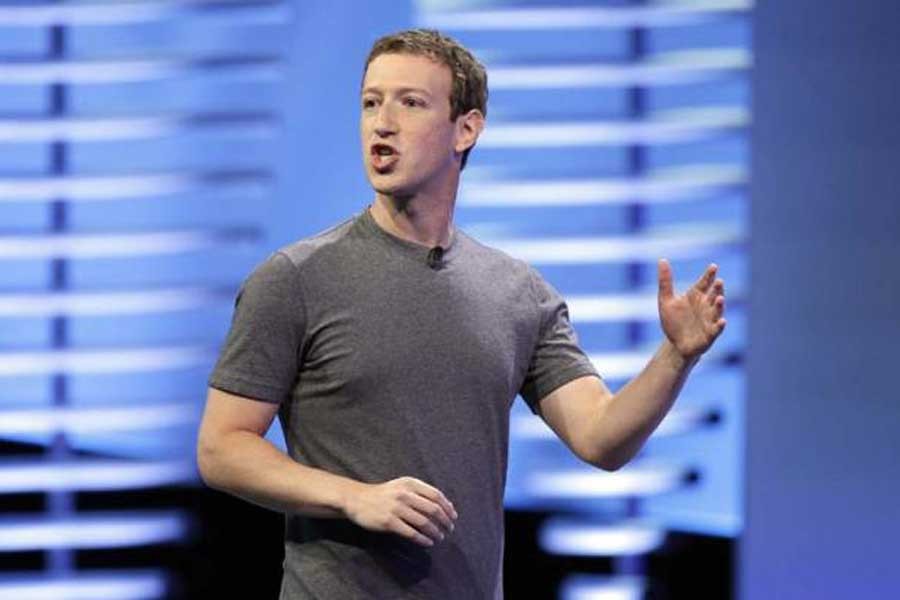
Published :
Updated :

Facebook's chief executive Mark Zuckerberg has made back-to-back apologies for a self-confessed "breach of trust" relating to 'protection of information' on the part of the world's largest social media network.
It was no simple matter of the humongous social media platform being in breach of confidentiality of information kept with it. In fact, whistle was blown about British consultancy Cambridge Analytica for having 'improperly accessed users' information to build profiles on American voters'. And, these were purportedly used to help elect Trump as US president in 2016.
With Zuckerberg himself saying that an app built by a university researcher "leaked Facebook data of millions of people in 2014", the enormity of Facebook's laxity strikes as appalling.
So Zuckerberg who had said 'sorry' only last week in US television interviews has had to issue a full page advertisement saying 'sorry' to Britons again last Sunday. The apologies came in the face of an unabated controversy over the vulnerability of personal data to abuse, let alone the tumbling of the share price value of Facebook. Since the allegations came forth, the social media platform has lost US$ 50 billion in market value. One wouldn't be surprised were there to be deserters among high-profile advertisers.
Thus, we see a full page newspaper advertisement reiterating the first apology which in a nutshell puts forward some self-corrective pledges preceded by a forthright admission of prevailing cracks in the system. Zuckerberg said, "This was a breach of trust, and I am sorry, we didn't do more at the time," presumably in 2014 when the leak was being exposed at some level of the management. "We have a responsibility to protect your information. If we can't, we don't deserve it," implored the Facebook founder in the signed advert urging to keep faith with him. "I promise to do better for you", adding he said, "Facebook would give users more information and control about who can access their data."
That said, we may turn to 'fake news epidemic', especially in the USA. 'After the authorities failed to stop "fake news" around the US election, Facebook, Twitter, Reddit and Google have been facing heightened public scrutiny.' To go around the problem journalist Lara Kolodmy wrote on November 17, 2016 in the US under the storyline: "Full Fact aims to end fake news with automated fact checking tools." Fake news is a threat to democracy and staple of which extremist misinformation or disinformation campaigns are made, with ulterior motives .We have not only to beware of it but also urge the platforms to create a defence mechanism against it.
We have heard about steps to outsmart the intruders into the system. There has been a talk about the social media vehicles contemplating introduction of a pre-filtration process with automated rejection of malware. Of course the stakeholders will have to put their heads together to come out with a comprehensive formulation of a code of conduct striking the right balance between credibility of the platforms, freedom of expression, respect for rights, and the good of the community and nation.
Ideally, we should be looking forward to the time when "fact checking will be as easy as spell checking." It may sound like a utopia just now, but it's not a mission impossible if the credibility and sustenance of the social media outreach are valued over its transient glamour.


 For all latest news, follow The Financial Express Google News channel.
For all latest news, follow The Financial Express Google News channel.